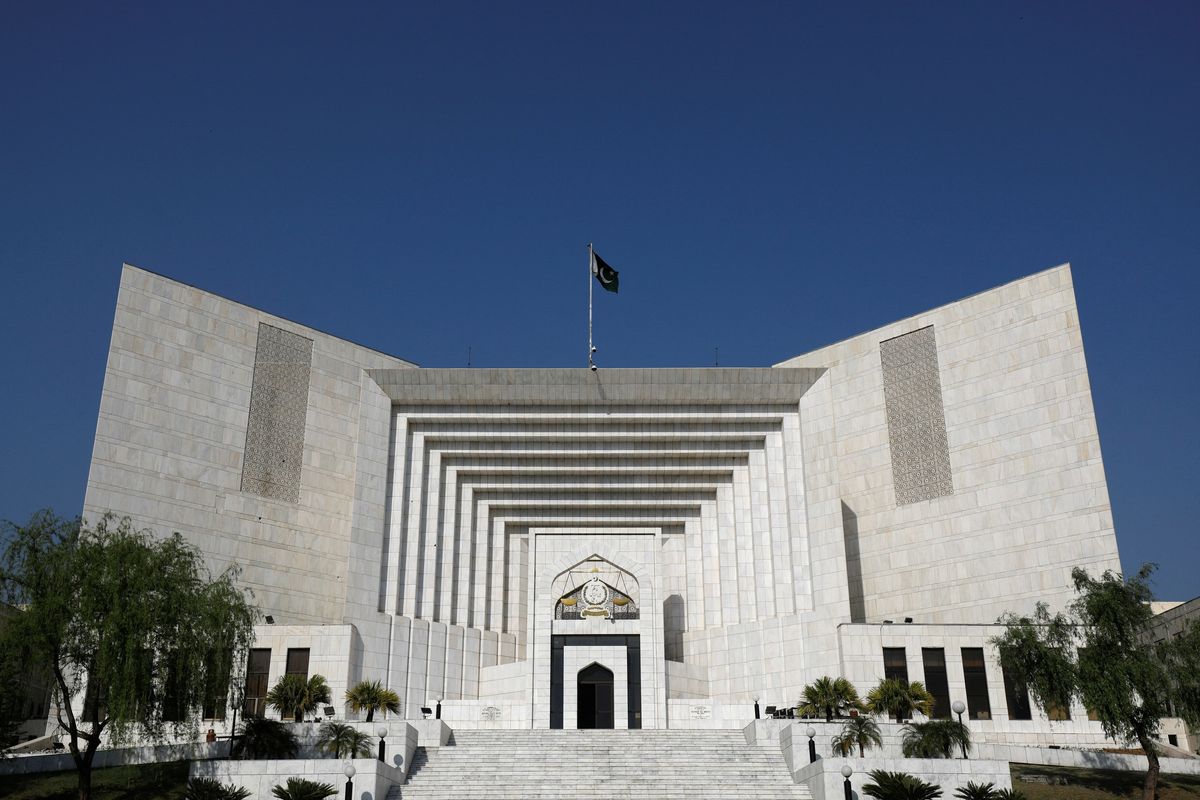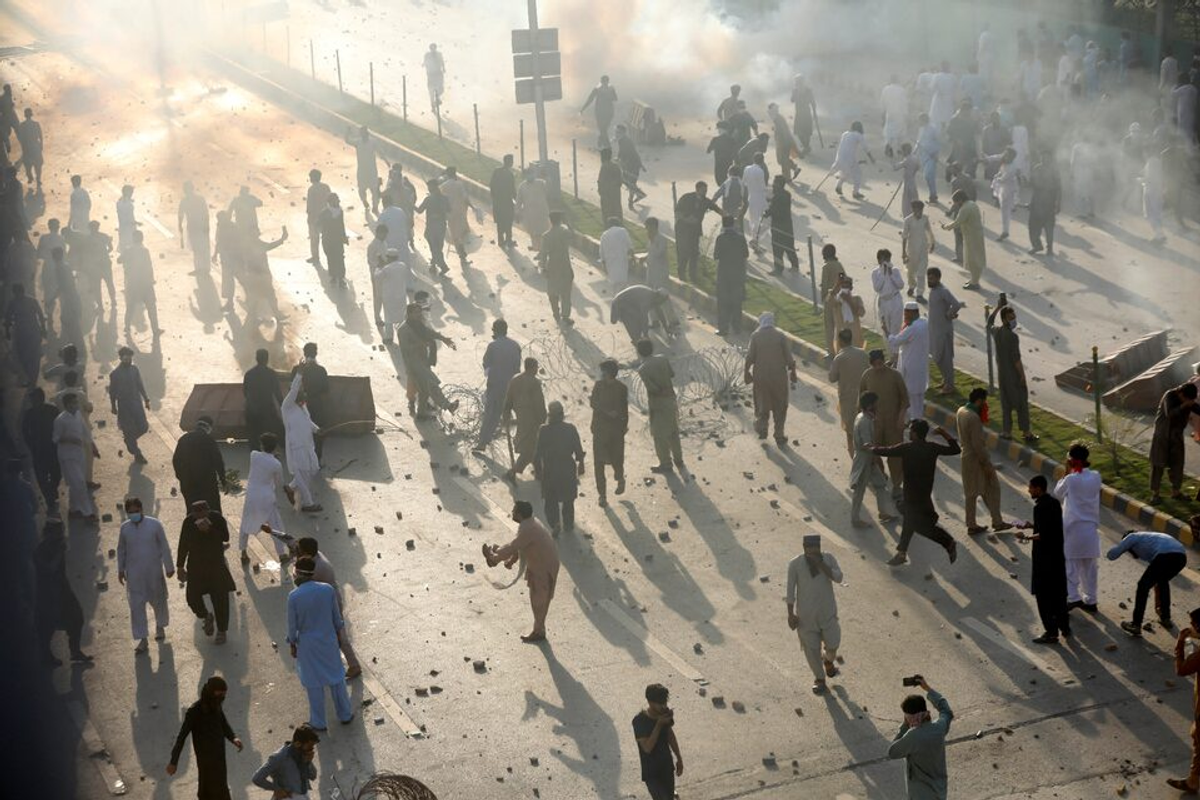Pakistan’s top court conditionally allows military courts to announce verdicts against 85 civilians
Supreme Court stresses leniency for eligible accused, urging their release, while sentencing others to prison if convicted
News Desk
The News Desk provides timely and factual coverage of national and international events, with an emphasis on accuracy and clarity.

Pakistan's Supreme Court (SC) ruled on Friday that military courts could announce verdicts in cases involving 85 civilians. However, it linked the implementation of those decisions to the outcome of a pending constitutional case challenging the legality of such trials.
The issue of military courts gained attention following the May 9, 2023, protests, during which more than 80 civilians were detained for attacking military installations in the aftermath of former prime minister Imran Khan's first arrest.
In early 2024, the Supreme Court ruled civilian trials in military courts unconstitutional, though the Defense Ministry argued that extraordinary circumstances justified such proceedings, fueling the ongoing debate.
The passage of the 26th Amendment in October 2024, which reformed the judicial appointment process, has since become a focal point in the military trials controversy, setting the stage for today’s ruling.
The hearing
The court today emphasized that accused individuals eligible for leniency should be released, while those who cannot be acquitted should be sentenced and transferred to prison.
During the proceedings, Justice Jamal Khan Mandokhail described the issue as "serious" and stated that he needed to be fully satisfied before making a determination.
Defense Ministry lawyer Khawaja Haris argued that fundamental rights are not challenged in military courts under Article 3(A) of the constitution. Justice Musarrat Hilali countered, noting the focus is on civilians versus non-civilians, rather than fundamental rights.

Justice Mandokhail questioned Haris about the confidence in civilian courts, remarking that those voluntarily joining the army are aware of the Army Act's application. He added that the act was designed for maintaining military discipline and employment rules, rather than granting fundamental rights.
Justice Aminuddin Khan stated that while parties may remain confined to their arguments, courts are not bound by the same limits.
He announced that cases concerning the 26th Amendment would be scheduled after the military court trial hearings.
The defense counsel indicated that more time would be needed for arguments. In response, Justice Aminuddin suggested adjourning the case until after the winter recess.
Justice Muhammad Ali Mazhar inquired about the implications of nullified Army Act provisions for cases like the May 9 incidents. He also questioned whether verdicts passed under those provisions would retain validity. Defense counsel clarified that rulings typically remain valid unless explicitly overturned.
The bench, hearing arguments from both sides, suggested adjourning the case until after winter recess, citing extensive deliberations required. The hearings on the 26th constitutional amendment petitions are expected to begin in mid-January, with multiple cases still in the pipeline, according to Justice Aminuddin Khan.







Comments
See what people are discussing